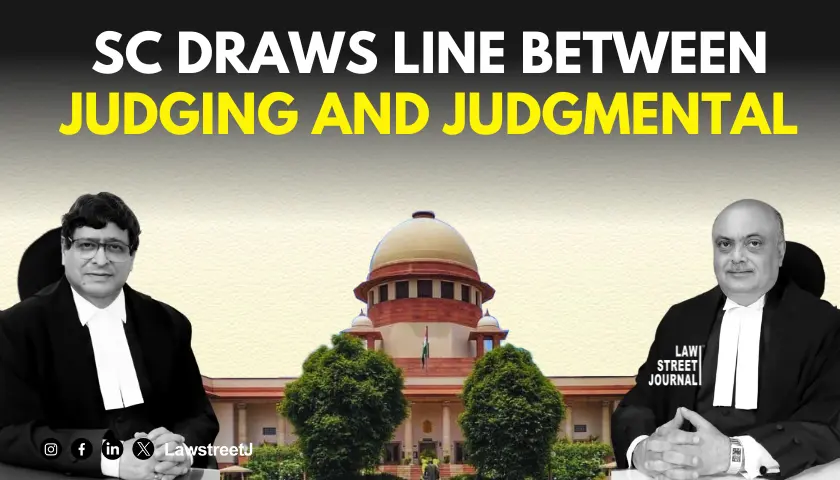NEW DELHI: The Supreme Court has said it is always necessary to remember the distinction between judging and judgmental.
The court objected to "personal" remarks made by a Madras High Court judge against a fellow judge.
A bench of Justices Sudhanshu Dhulia and Ahsanuddin Amanullah sounded "a note of caution" in this regard while granting interim bail to YouTuber Savukku Shankar on July 18, 2024 in a case of preventive detention.
Shankar has allegedly exposed corruption in Tamil Nadu and faced the wrath of the ruling DMK government.
Upon hearing senior advocates Siddharth Dave and advocate Balaji Srinivasan for the petitioner and senior advocate Sidharth Luthra for Tamil Nadu government, the bench said since the matter was pending before the High Court, it would not deal with the merits of the case.
However, the bench noted, "The judge of the High Court in its order dated 06.06.2024 has made some observations on his brother judge which should have been best avoided."
"It is always necessary for us to remember the distinction between judging and judgmental!," the bench added.
A habeas corpus petition was filed by A Kamala, challenging the detention order issued against her son on May 12.
As the matter was heard by a division bench of the HC, the presiding judge quashed the detention order while the companion judge thought it fit to issue notice to the state government.
Since there was the split verdict, the matter was posted before a third judge, who made some remarks against the presiding judge of the division bench.
The petitioner before the top court pointed out the presiding judge stated in clear and unambiguous terms that he was “spoken to” and that “two highly placed persons met him in person and did not wish for him to test the detention order on merits”.
"There are various forces at play that wish to keep the detinue behind bars illegally and are ready to go to the extent of approaching a sitting Judge in an attempt to influence his judgment," the petitioner quoted the presiding judge.
The apex court, in its order, said the petitioner was not at fault for the delay caused in the matter.
The bench ordered interim release of the detenue also for the reasons that the preventive detention law under which the detenue has been detained also provides for a temporary release. The top court also requested the Madras High Court to decide the matter expeditiously, while clarifying that the interim relief to the petitioner is only in case of preventive detention not in any other case, where he has been arrested.

















